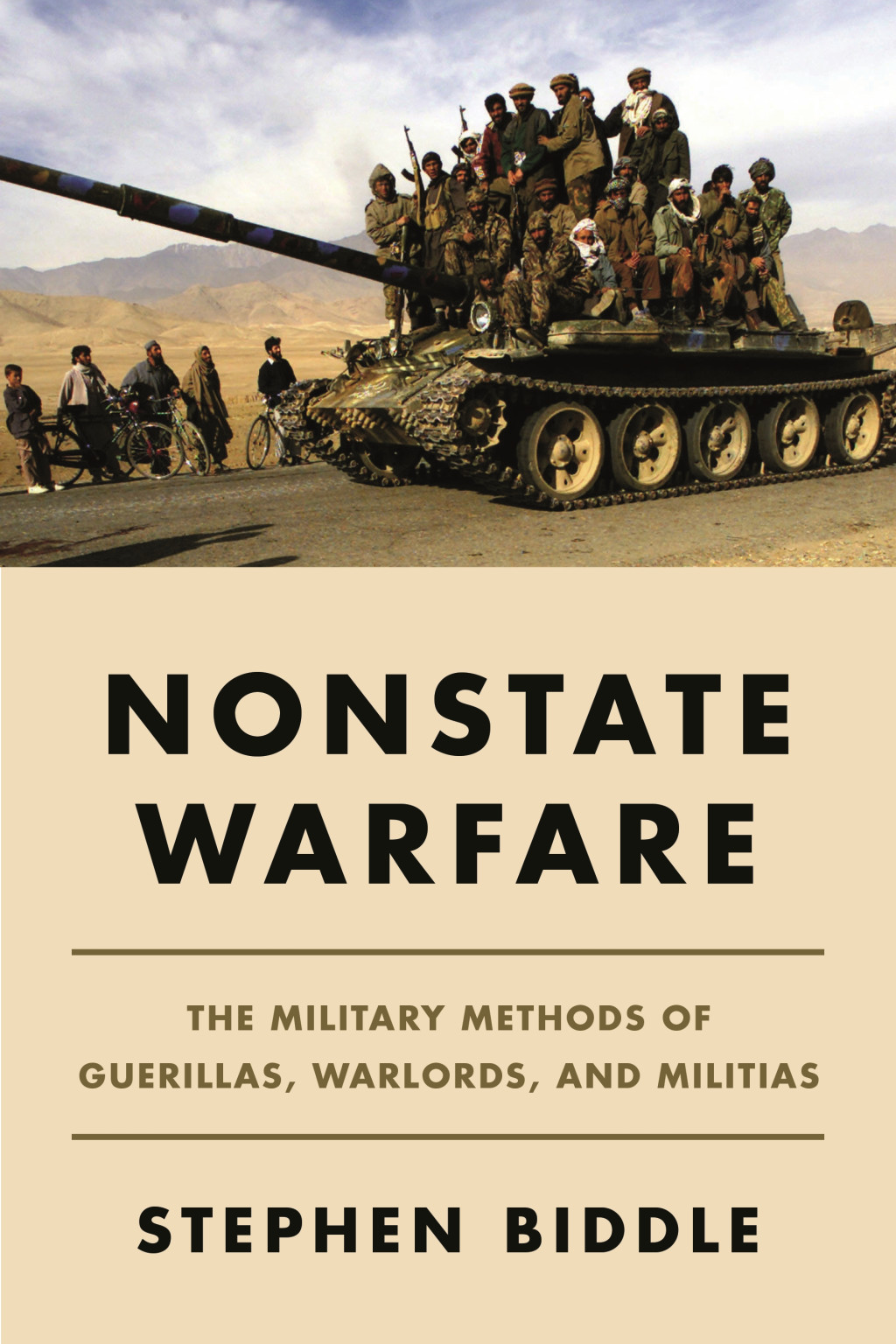Nonstate Warfare
The Military Methods of Guerillas, Warlords, and Militias
Stephen Biddle explains how nonstate military strategies overturn traditional perspectives on warfare.

- Publisher
- Princeton University Press
- Release Date
- April 2021
- Pages
- 464
- ISBN
- 978-0-69-120751-3
Since September 11, 2001, armed nonstate actors have received increased attention and discussion from scholars, policymakers, and the military. Underlying debates about nonstate warfare and how it should be countered is one crucial assumption: that state and nonstate actors fight very differently. In Nonstate Warfare, Stephen Biddle upturns this distinction, arguing that there is actually nothing intrinsic separating state or nonstate military behavior. Through an in-depth look at nonstate military conduct, Biddle shows that many nonstate armies now fight more “conventionally” than many state armies, and that the internal politics of nonstate actors—their institutional maturity and wartime stakes rather than their material weapons or equipment—determines tactics and strategies.
Biddle frames nonstate and state methods along a continuum, spanning Fabian-style irregular warfare to Napoleonic-style warfare involving massed armies, and he presents a systematic theory to explain any given nonstate actor’s position on this spectrum. Showing that most warfare for at least a century has kept to the blended middle of the spectrum, Biddle argues that material and tribal culture explanations for nonstate warfare methods do not adequately explain observed patterns of war making. Investigating a range of historical examples from Lebanon and Iraq to Somalia, Croatia, and the Vietcong, Biddle demonstrates that viewing state and nonstate war fighting as mutually exclusive can lead to errors in policy and scholarship.
A comprehensive account of combat methods and military rationale, Nonstate Warfare offers a new understanding for wartime military behavior.
Reviews and Endorsements
Polished work . . . a rare occasion that forces one to re-think received wisdom about rebel groups.
Open
In an important and innovative analysis, Biddle takes issue with what he sees as a lazy distinction between the regular military strategy of states and the guerrilla techniques of nonstate actors.
Foreign Affairs
Not since Clausewitz’s On War has a book so powerfully illustrated how war is politics by other means. Nonstate Warfare moves beyond prevailing explanations of insurgent fighting to highlight the role of internal politics in how nonstate actors fight and whether they win. The brilliantly curated case studies offer a tour de force test for the book’s causal logic.
Fotini Christia, author of Alliance Formation in Civil Wars
Biddle advances a provocative argument that models state and nonstate conflict behavior along a single spectrum, and explains it with a persuasive theory that combines material and domestic political variables. The result is an elegant tour de force and a requisite point of departure for future scholarship.
Peter D. Feaver, author of Armed Servants: Agency, Oversight, and Civil-Military Relations
Once again, Biddle revolutionizes how we understand conflict. In Nonstate Warfare, he teaches us that long-standing distinctions between conventional and irregular warfare are fatally misconceived. This book should transform how scholars study civil war and how nations prepare for it.
Jacob N. Shapiro, author of The Terrorist’s Dilemma and coauthor of Small Wars, Big Data
This is one of the best books in the past decade or so to look at military history and policy from a theoretical perspective. Advancing a novel and well-developed argument, and using case studies that are truly extraordinary, Biddle illustrates the challenge of modern nonstate warfare.
Allan C. Stam, coauthor of Why Leaders Fight